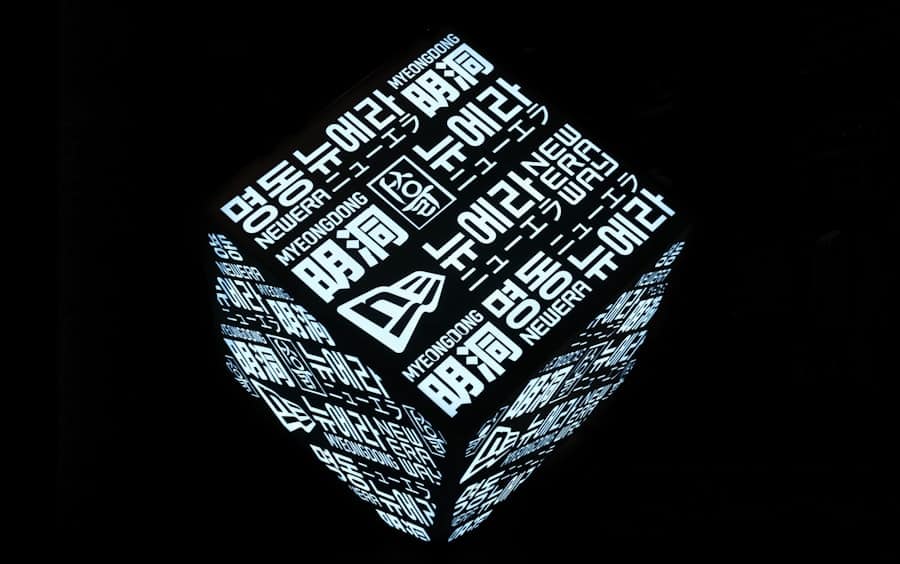The convergence of artificial intelligence (AI) and blockchain technology represents a transformative shift in various sectors, particularly in auditing. As organizations increasingly seek to enhance transparency, efficiency, and accuracy in their financial reporting and compliance processes, the integration of these two powerful technologies offers a promising solution. AI, with its ability to analyze vast amounts of data and identify patterns, complements blockchain’s immutable ledger system, which ensures data integrity and security.
This collaboration not only streamlines auditing processes but also enhances the reliability of financial information, thereby fostering greater trust among stakeholders. The synergy between AI and blockchain is particularly relevant in the context of auditing, where the need for accuracy and transparency is paramount. Traditional auditing methods often involve manual processes that can be time-consuming and prone to human error.
By leveraging AI’s capabilities in data analysis and machine learning alongside blockchain’s decentralized and tamper-proof nature, auditors can significantly improve their methodologies. This article delves into the roles of AI and blockchain in auditing, explores how they work together, examines the benefits and challenges of their collaboration, and highlights real-world applications that illustrate their potential.
Key Takeaways
- AI and blockchain collaboration is revolutionizing the auditing process by enhancing transparency and efficiency.
- AI plays a crucial role in auditing by automating repetitive tasks, analyzing large datasets, and detecting anomalies or patterns.
- Blockchain technology ensures the integrity and security of audit trails, providing a tamper-proof record of transactions.
- AI and blockchain work together to provide a transparent and immutable audit trail, reducing the risk of fraud and errors.
- The collaboration of AI and blockchain in auditing offers benefits such as improved accuracy, real-time monitoring, and cost savings.
The Role of AI in Auditing
Artificial intelligence plays a pivotal role in modern auditing by automating routine tasks, enhancing data analysis, and providing insights that were previously unattainable through traditional methods. One of the most significant advantages of AI in auditing is its ability to process large volumes of data quickly and accurately. For instance, machine learning algorithms can analyze transaction data to identify anomalies or patterns that may indicate fraud or errors.
This capability allows auditors to focus their efforts on high-risk areas rather than sifting through mountains of data manually. Moreover, AI can facilitate continuous auditing practices, enabling organizations to monitor their financial transactions in real-time. This shift from periodic audits to continuous monitoring not only improves the timeliness of financial reporting but also enhances the overall quality of audits.
By employing predictive analytics, auditors can anticipate potential issues before they escalate, allowing for proactive measures to be taken. The integration of AI into auditing processes thus transforms the auditor’s role from a retrospective evaluator to a forward-looking advisor, providing valuable insights that can drive strategic decision-making.
The Role of Blockchain in Auditing

Blockchain technology introduces a revolutionary approach to data management and security that is particularly beneficial for auditing purposes. At its core, blockchain is a decentralized ledger that records transactions across multiple computers in a way that ensures the integrity and transparency of the data. Each transaction is time-stamped and linked to previous transactions, creating an immutable chain that is resistant to tampering.
This characteristic is crucial for auditors, as it provides a reliable source of truth for financial records. In addition to its security features, blockchain enhances traceability in auditing processes. Every transaction recorded on the blockchain can be traced back to its origin, allowing auditors to verify the authenticity of financial statements with unprecedented accuracy.
This level of transparency not only simplifies the audit process but also instills confidence among stakeholders regarding the reliability of financial information. Furthermore, smart contracts—self-executing contracts with the terms directly written into code—can automate compliance checks and ensure that transactions adhere to regulatory requirements without the need for intermediaries.
How AI and Blockchain Work Together for Transparent Auditing
The collaboration between AI and blockchain creates a robust framework for transparent auditing that addresses many of the limitations inherent in traditional practices. By combining AI’s analytical prowess with blockchain’s secure data storage capabilities, auditors can achieve a level of efficiency and accuracy that was previously unattainable. For example, AI algorithms can analyze data stored on a blockchain to identify trends or anomalies while ensuring that the underlying data remains secure and unaltered.
This integration allows for real-time auditing capabilities, where auditors can continuously monitor transactions as they occur on the blockchain. As transactions are recorded in an immutable ledger, AI can flag any discrepancies or unusual patterns immediately, enabling auditors to investigate potential issues without delay. This proactive approach not only enhances the quality of audits but also reduces the risk of fraud and errors going undetected for extended periods.
Moreover, the combination of AI and blockchain fosters collaboration among various stakeholders involved in the auditing process. With a shared, transparent view of financial transactions on the blockchain, all parties—from auditors to regulators—can access the same information simultaneously. This level of transparency reduces information asymmetry and builds trust among stakeholders, as everyone can verify the accuracy of financial records independently.
Benefits of AI and Blockchain Collaboration in Auditing
The collaboration between AI and blockchain offers numerous benefits that significantly enhance the auditing process. One of the most notable advantages is increased efficiency. By automating routine tasks such as data collection and analysis, auditors can allocate more time to higher-value activities such as risk assessment and strategic advisory services.
This shift not only improves productivity but also allows auditors to deliver more comprehensive insights to their clients. Another key benefit is enhanced accuracy and reliability. The use of blockchain ensures that financial records are tamper-proof and verifiable, while AI’s analytical capabilities help identify discrepancies or anomalies that may indicate fraud or errors.
This dual-layered approach significantly reduces the likelihood of human error and enhances the overall quality of audits. As a result, organizations can have greater confidence in their financial reporting, which is essential for maintaining stakeholder trust. Additionally, the collaboration between AI and blockchain promotes compliance with regulatory requirements.
With real-time monitoring capabilities enabled by AI and the transparent nature of blockchain, organizations can ensure that they adhere to relevant laws and regulations more effectively. This proactive approach to compliance not only mitigates risks associated with non-compliance but also fosters a culture of accountability within organizations.
Challenges and Limitations of AI and Blockchain in Auditing

Infrastructure and Expertise Barriers
The collaboration between AI and blockchain in auditing offers numerous benefits, but several challenges must be addressed.
Many organizations may lack the necessary infrastructure or expertise to implement AI and blockchain solutions effectively, hindering adoption rates and limiting the potential benefits.
Data Privacy and Security Concerns
Moreover, there are concerns regarding data privacy and security when utilizing AI and blockchain in auditing processes. While blockchain provides a secure environment for data storage, the integration of AI may require access to sensitive information that could pose privacy risks if not managed properly. Organizations must navigate these challenges carefully to ensure compliance with data protection regulations while leveraging the advantages offered by these technologies.
Maintaining Human Expertise in Auditing
Another limitation is the potential for over-reliance on technology in auditing practices. While AI can enhance data analysis capabilities, it is essential for auditors to maintain critical thinking skills and professional judgment when interpreting results. The risk lies in assuming that technology alone can replace human expertise in identifying complex issues or understanding contextual factors that may influence financial reporting.
Real-world Examples of AI and Blockchain Collaboration in Auditing
Several organizations have begun exploring the collaboration between AI and blockchain in their auditing practices, showcasing its potential benefits in real-world scenarios. One notable example is Deloitte’s use of blockchain technology for audit purposes. The firm has developed a platform called “Deloitte Blockchain,” which enables clients to record transactions on a secure ledger while utilizing AI algorithms to analyze transaction data for anomalies or irregularities.
This innovative approach has allowed Deloitte to enhance its audit quality while providing clients with real-time insights into their financial activities. Another example is PwC’s initiative called “Smart Audit,” which leverages both AI and blockchain technologies to streamline audit processes. By integrating machine learning algorithms with blockchain-based transaction records, PwC aims to improve efficiency and accuracy in audits while reducing costs for clients.
The firm’s pilot projects have demonstrated promising results, highlighting how this collaboration can transform traditional auditing practices. Additionally, companies like IBM are exploring the use of blockchain for supply chain audits, where transparency is crucial for verifying compliance with regulations.
The Future of AI and Blockchain in Auditing
Looking ahead, the future of AI and blockchain collaboration in auditing appears promising as organizations continue to seek innovative solutions to enhance their financial reporting processes. As technology evolves, we can expect further advancements in machine learning algorithms that will enable even more sophisticated data analysis capabilities. These developments will likely lead to more accurate predictions regarding potential risks or anomalies within financial transactions.
Moreover, as regulatory frameworks evolve to accommodate emerging technologies, we may see increased acceptance of AI-driven audits supported by blockchain technology. Regulatory bodies are beginning to recognize the potential benefits these technologies offer in terms of transparency and accountability, paving the way for more widespread adoption across industries. Furthermore, as organizations become more comfortable with digital transformation initiatives, we may witness a shift towards fully automated audit processes where human intervention is minimized.
While this evolution presents opportunities for increased efficiency, it will also necessitate ongoing training for auditors to adapt to new roles focused on oversight rather than traditional audit functions. In conclusion, the collaboration between AI and blockchain holds significant promise for revolutionizing auditing practices by enhancing efficiency, accuracy, transparency, and compliance. As organizations navigate challenges associated with implementation while embracing technological advancements, we are likely to see a new era of auditing characterized by innovation and trustworthiness.
In a related article, How Smartwatches Are Revolutionizing the Workplace, the impact of wearable technology on productivity and efficiency in modern work environments is explored. This article delves into the ways in which smartwatches are changing the dynamics of the workplace and enhancing communication and collaboration among employees. The integration of AI and blockchain technology in smartwatches is also discussed, highlighting the potential for further innovation and advancement in the field.
FAQs
What is AI and Blockchain collaboration for transparent auditing?
AI and Blockchain collaboration for transparent auditing refers to the use of artificial intelligence and blockchain technology to enhance the transparency and accuracy of auditing processes. This collaboration allows for the automation of auditing tasks and the secure recording of audit trails on a decentralized and tamper-proof ledger.
How does AI contribute to transparent auditing?
AI contributes to transparent auditing by automating repetitive auditing tasks, analyzing large volumes of data to identify patterns and anomalies, and providing real-time insights into financial transactions. AI can also be used to detect potential fraud or errors in financial records.
How does Blockchain contribute to transparent auditing?
Blockchain contributes to transparent auditing by providing a secure and immutable ledger for recording audit trails. This technology ensures that audit records are tamper-proof and transparent, as they can be accessed and verified by authorized parties in a decentralized manner.
What are the benefits of AI and Blockchain collaboration for transparent auditing?
The benefits of AI and Blockchain collaboration for transparent auditing include increased efficiency and accuracy in auditing processes, enhanced transparency and trust in audit trails, reduced risk of fraud and errors, and improved compliance with regulatory requirements.
What are some use cases of AI and Blockchain collaboration for transparent auditing?
Some use cases of AI and Blockchain collaboration for transparent auditing include financial auditing, supply chain auditing, healthcare auditing, and compliance auditing. These technologies can be applied across various industries to improve the transparency and reliability of auditing processes.

